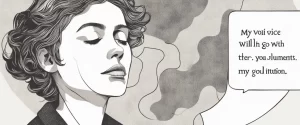
In the realm of literature, certain books resonate with readers on a profound level, challenging established norms and prompting deeper contemplation of complex ideas. Jacques Derrida’s “Writing and Difference” and Will Tuttle’s “The World Peace Diet” are two such thought-provoking works that have garnered attention for their distinctive approaches to investigating foundational aspects of human existence. Although exploring different realms of knowledge, these works share a common thread in their pursuit of unraveling accepted beliefs and exposing the hidden structures that shape our understanding of the world. As we embark on this comparative study of “Writing and Difference” and “The World Peace Diet,” we will delve into the philosophical perspectives and intellectual frameworks put forth by Derrida and Tuttle, examining the ways in which they engage with language, culture, and the interconnectedness of all living beings. Through this exploration, we hope to unravel the layered complexities and uncover the fascinating parallels that exist between these two seminal works, illuminating new insights into the multifaceted nature of our existence.
Brief Summary of Two Books
Writing and Difference by Jacques Derrida
“Writing and Difference” is a seminal work by Jacques Derrida, a French philosopher and literary theorist, published in 1967. In this book, Derrida challenges traditional Western philosophy and explores the concept of “writing” beyond its literal sense. He argues that writing is not just a means of producing fixed, stable meanings but is instead a complex and elusive practice that is inherent in all forms of communication and thought.
Derrida dissects the relationship between speech and writing, particularly highlighting the privileging of speech over writing in Western thought. He contends that writing has often been marginalized or devalued because it is seen as derivative or secondary to speech. However, Derrida asserts that writing is not simply a representation or transcription of speech but has its own inherent power.
The book also delves into the ways in which traditional philosophy has relied on binary oppositions and hierarchies to create meaning. Derrida challenges these hierarchical structures by examining the play of differences within language and text. He argues that meaning is never fixed but is constantly shifting and deferred through the interplay of signifiers.
Furthermore, Derrida critiques the concept of presence, arguing that it is an illusion that words or concepts can be fully present or stable. He introduces the notion of “différance,” a term he coined to embody the interplay of difference and deferral at the heart of language and meaning-making.
Overall, “Writing and Difference” is a foundational text in deconstruction, a branch of literary theory developed by Derrida, which challenges the fixed meanings and structures of language and thought in Western philosophy. Through his analysis of writing, language, and meaning, Derrida aims to disrupt established ways of thinking and open up new possibilities for interpretation and understanding.
The World Peace Diet by Will Tuttle
“The World Peace Diet” by Will Tuttle is a thought-provoking book that explores the connection between our food choices and the larger impact they have on ourselves, animals, and the planet. Tuttle argues that our violent and exploitative relationship with animals, as seen in factory farming and animal agriculture, perpetuates a cycle of violence and destruction that also affects our health and well-being.
Tuttle delves into the history of humanity’s relationship with animals and how this has led to the rise of dominant and oppressive societies. He examines the cultural, religious, and psychological justifications that have been used to justify the mistreatment and exploitation of animals throughout history.
The author suggests that a shift towards a plant-based diet can not only benefit the health of individuals but also help create a more peaceful and sustainable world. By embracing a diet that respects and honors all life, Tuttle argues that we can break free from the violent systems of domination and control that currently govern our society. He presents evidence to support the idea that a plant-based diet can improve physical and mental health, reduce environmental degradation, and promote compassion and empathy towards all beings.
Throughout the book, Tuttle challenges readers to reconsider their food choices and adopt a worldview that recognizes the interconnectedness of all life. He encourages readers to expand their compassion beyond humans and extend it to all sentient beings, advocating for a world where nonviolence, harmony, and peace are prioritized.
“The World Peace Diet” is a philosophical exploration that invites readers to question long-held beliefs and habits concerning food, society, and our relationship with the natural world. It aims to inspire individuals to make conscious choices about their diet and take responsibility for creating a more peaceful and sustainable future for all living beings.
Comparison between Two Books

Similarities in Philosophy
Parallel Writing and Difference by Jacques Derrida and The World Peace Diet by Will Tuttle are both thought-provoking works that delve into important philosophical questions. Despite their differences in subject matter and approach, these books share some fundamental similarities in their philosophies.
Firstly, both Derrida and Tuttle challenge mainstream ideologies and argue for a deconstruction of existing systems of thought. Derrida’s “Writing and Difference” exposes the limitations of traditional linguistic structures and highlights the multiplicity of meanings that exist beyond the fixed logocentric framework. Similarly, Tuttle’s “The World Peace Diet” questions the prevalent belief in the superiority and entitlement of humans over animals, challenging the exploitation and oppression prevalent in the food industry. Both authors advocate for a reevaluation and deconstruction of established thinking paradigms to promote alternative possibilities and perspectives.
Secondly, both Derrida and Tuttle emphasize the interconnectedness of all beings and stress the importance of recognizing and respecting this interconnectedness. Derrida’s conception of “différance” highlights the inherent differences within language and reality, while also acknowledging their interdependence. Tuttle, on the other hand, argues for the interconnectedness of all sentient beings, emphasizing the ripple effect of our actions on the wider ecosystem. Both authors advocate for a shift towards a more inclusive and compassionate worldview that acknowledges the inherent value of all beings, irrespective of their differences.
Furthermore, both Derrida and Tuttle challenge binary oppositions and dualistic thinking. Derrida’s deconstruction dismantles the binary structures prevalent in Western philosophy, pointing towards a more fluid, nuanced understanding of reality. Similarly, Tuttle challenges the notion of animals solely as objects of human consumption, advocating for a recognition of their subjectivity and agency. Both authors encourage a move beyond simplistic categorizations and towards a more nuanced, pluralistic perspective that embraces complexity.
In conclusion, while Jacques Derrida’s “Writing and Difference” and Will Tuttle’s “The World Peace Diet” may differ in subject matter, they converge in their philosophical approaches. Both works advocate for questioning established ideologies, recognizing the interconnectedness of all beings, and challenging binary oppositions. Through their writings, Derrida and Tuttle offer profound insights that encourage readers to critically engage with existing paradigms and envision a more inclusive and compassionate future.
Divergences in Philosophy
Writing and Difference by Jacques Derrida and The World Peace Diet by Will Tuttle are two philosophical texts that explore different aspects of human existence and the nature of reality. While both books touch upon profound philosophical ideas, they diverge in terms of their overall approach, subject matter, and the questions they seek to answer.
One main point of divergence between the two works lies in their focus. Writing and Difference, written by Jacques Derrida, primarily explores the concept of language and writing. Derrida delves into the complexities of language and its inherent contradictions, challenging traditional philosophical assumptions. He introduces the concept of deconstruction, which questions the stability and hierarchy of meaning within language. Derrida seeks to expose the hidden assumptions and binaries present in philosophical and linguistic structures.
On the other hand, The World Peace Diet by Will Tuttle adopts a more practical approach, centering around the ethical aspects of food choices and the interconnectedness of all living beings. Tuttle delves into the relationship between our food choices, animal rights, environmental sustainability, and human compassion. Unlike Derrida’s emphasis on the abstract and metaphysical, Tuttle grounds his philosophy in everyday actions and their impact on the world around us.
Another aspect of divergence lies in the authors’ methodologies. Derrida’s Writing and Difference is highly complex, employing dense and intricate language. His deconstructionist approach challenges established philosophical frameworks, destabilizing traditional notions of meaning and truth. Derrida’s writing style can be seen as reflective of his philosophical ideas, as he aims to deconstruct and critically analyze language itself.
In contrast, Will Tuttle’s The World Peace Diet follows a more accessible and straightforward narrative style. Tuttle utilizes examples, personal anecdotes, and real-life stories to make his philosophical arguments relatable and applicable to readers from various backgrounds. He seeks to inspire readers to consider the ethical implications of their food choices, fostering empathy and compassion towards all living beings.
Lastly, the divergent nature of philosophy in these books can be seen in the questions they aim to answer. Writing and Difference primarily tackles the nature of language, questioning how meanings are constructed and deconstructed. Derrida explores the inherent contradictions and hierarchies within language, challenging readers to critically examine the way in which we communicate and construct knowledge.
In contrast, The World Peace Diet focuses on ethical questions regarding our food choices and the repercussions they have on both animals and the environment. Tuttle seeks to address the philosophical underpinnings that contribute to the perpetuation of violence and suffering through the food industry. His central question revolves around how we can create a more peaceful and compassionate world through conscious dietary choices.
In conclusion, while both Writing and Difference by Jacques Derrida and The World Peace Diet by Will Tuttle delve into philosophical subjects, they diverge in terms of their focus, methodological approaches, and the questions they endeavor to answer. Derrida’s work revolves around the complexities of language, deconstructing established meanings, and hierarchies, while Tuttle’s book emphasizes the ethical implications of our food choices and the interconnectedness of all living beings.

Conclusion
Both books, “Writing and Difference” by Jacques Derrida and “The World Peace Diet” by Will Tuttle, are considered important works in their respective fields. However, the choice ultimately depends on the reader’s interests and preferences.
“Writing and Difference” is a seminal text in post-structuralist philosophy, written by one of the most influential thinkers of the 20th century. Derrida explores the nature of language, meaning, and identity, challenging traditional Western modes of thought and opening up new possibilities for understanding. This book is particularly valuable for those interested in philosophy, literary theory, and critical thinking.
On the other hand, “The World Peace Diet” addresses the ethical and environmental dimensions of our food choices, arguing for a plant-based diet as a means to create a more harmonious and compassionate world. Tuttle delves into the interconnectedness of all life and critiques the violence inherent in animal agriculture. This book is recommended for individuals interested in animal rights, sustainability, and creating a more just and peaceful society.
In conclusion, the worthiness of each book depends on the reader’s specific areas of interest. Both texts offer valuable insights and perspectives, so it would be beneficial to determine which topic aligns more closely with your own concerns and then choose accordingly.



